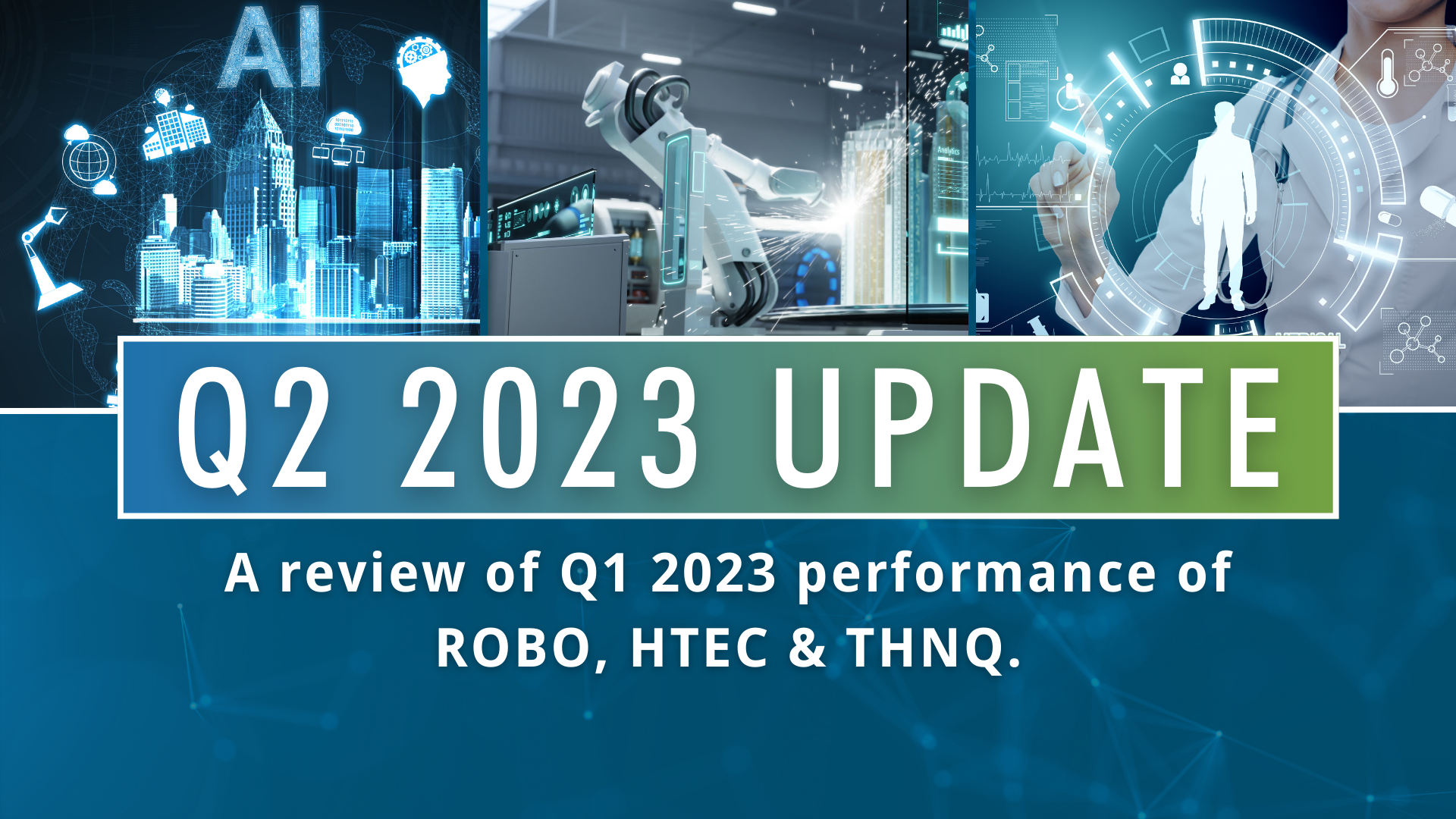This week, we discuss Luminar's market leadership in lidar technology and why Teladoc will remain a frontrunner in telehealth. We also spoke to iRobot EVP and Chief Product Officer, Keith Hartsfield, about the company’s success and how the company is paving the way for smart homes of the future.
Please enjoy these insights from our research team.
Rise of the Consumer Robots
The name Roomba® has been synonymous with robotic vacuums for almost 20 years. That fact is a testament to both iRobot’s long-term vision and the company’s ability to execute that vision consistently—year after year. Today, iRobot continues to be at the forefront of this momentous shift with its growing line of smart cleaning devices.
iRobot’s lasting market dominance and proven leadership in the robotics and AI space have made it an important constituent in THNQ and ROBO. The company’s shares have climbed 75% in the past three years and the stock is up 200% over the past twelve months.
iRobot’s line of premium robots grew by approximately 55% in 2020, representing an impressive 60% of total robot sales and helping increase the average gross selling price. So, how has iRobot been able to maintain its dominant market position, with over 14 million connected home robots sold? We sat down with Keith Hartsfield, iRobot’s EVP and Chief Product Officer, to discuss the company’s success and explore how iRobot is paving the way for the smart home of the future.
A long Runway for Growth in Telehealth
After a stellar 2020 performance, telehealth pioneer Teladoc saw a 24% drop in its share price in the past month. This drop may be due in part to Amazon’s announcement to offer virtual care solutions with partner Crossover Health, expanding Amazon Care to companies of all sizes nationwide. Despite Amazon’s entrance into the space, we see Teladoc as the industry leader and believe the company is well positioned for sustained long-term success, driven by user growth and continued expansion of its telehealth services offering.
Teladoc, which completed the acquisition of Livongo in October, remains far ahead of the game, with multi-chronic disease management solutions powered by AI engines with over 50 million members and an additional 65 million potential users within their existing client base alone. In recent years, the company has made numerous acquisitions to expand remote care and monitoring capabilities, now boasting a global network of 50k+ clinicians in over 100 countries.
In 2020, acceptance and use of telehealth jumped by over 100% as a result of the pandemic. We expect this acceleration to continue, and while we’ll certainly continue to see competition arise, the early pioneers and market leaders will grow alongside the new players. According to the AMA, 75% of all doctors’ visits could be handled through telehealth, highlighting the tremendous runway ahead for Teladoc and the other members of the HTEC Index Telehealth sector.
Luminar Lights the Way for Autonomous Vehicles
Luminar, a leading provider of lidar-based perception and autonomy software for cars and trucks, made several important announcements on its first earnings call as a newly public company. Lidar (Light Detection and Ranging) is a laser-based sensing technology that is key to vehicle autonomy and driver assistance. With few exceptions, every company working on self-driving cars now uses lidar.
The ROBO index member expects its order book to grow by 40% from the current $1.3 billion by the end of 2021, with at least three major commercial wins in addition to its existing partnerships with Volvo, Daimler Trucks, MobilEye, and SAIC. This partnership with SAIC, China’s largest automaker, is allowing Luminar’s expansion into China, one of the plans unveiled on the earnings call. This will allow for the integration of lidar and software technology into its new production EV line launching in 2022, with the goal of widespread standardization across all vehicle lines.
The company also unveiled Sentinel, a full-stack, a-la-carte autonomous solution for auto and truck makers. Sentinel will enable automakers to offer highway autonomy and proactive safety capabilities on production vehicles, with perception, controls and planning software. We believe Luminar is well positioned to benefit from the rapid rise of lidar-based autonomous vehicles, with its technological advantage, first-class partners, and plenty of capital, following the raise of $570m through its merger with GMHI. Read our recent autonomous vehicle research report here.





